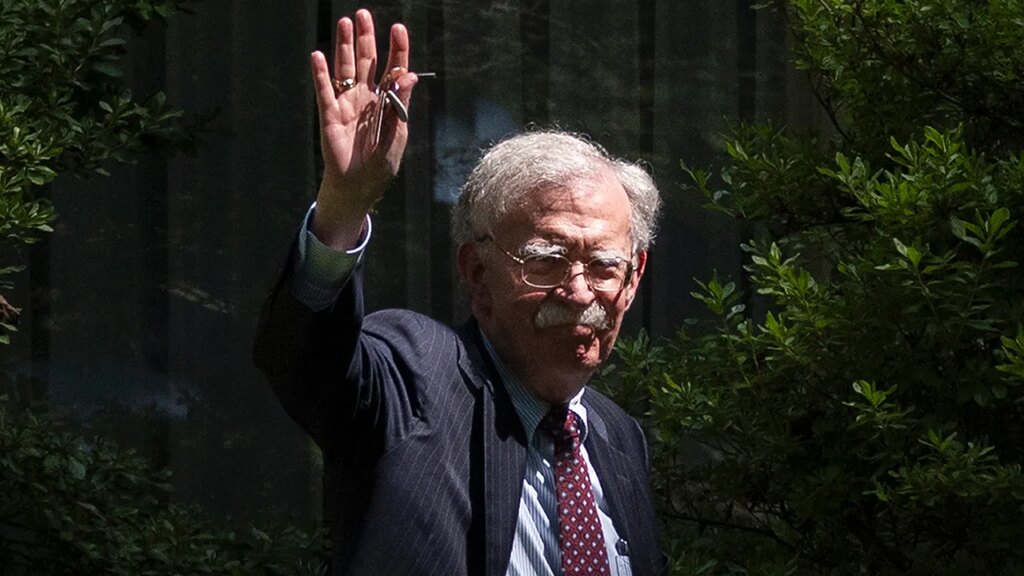Former White House National Security Advisor John Bolton has pleaded not guilty to 18 counts concerning the alleged mishandling of classified materials. Bolton surrendered to authorities on October 17, 2025, at a federal courthouse in Greenbelt, Maryland, where he was informed of the charges by U.S. Magistrate Judge Timothy Sullivan. Each count carries a potential penalty of up to ten years in prison, in addition to substantial fines.
| Article Subheadings |
|---|
| 1) Details of the Charges Against Bolton |
| 2) Context of Former National Security Advisor’s Situation |
| 3) The Legal Implications of the Case |
| 4) Public and Political Reactions |
| 5) Future Developments to Expect |
Details of the Charges Against Bolton
The 18 counts faced by John Bolton involve allegations of improperly handling classified information. The specific charges relate to a failure to secure sensitive documents and the potential unauthorized sharing of this material. During his arraignment, Judge Timothy Sullivan conveyed the seriousness of the accusations, implying that if convicted, Bolton could face lengthy prison sentences for each count. He has expressed his intention to fight the allegations vigorously, maintaining that he acted within the legal parameters of his position. The case could hinge on the interpretation of what constitutes “proper handling” of classified documents, a topic that remains central to national security discussions.
Context of Former National Security Advisor’s Situation
John Bolton, who served under President Donald Trump, finds himself in a complicated legal and political landscape. His tenure was marked by controversial policies and strategies, especially regarding foreign relations, particularly with North Korea and Iran. Bolton’s outspoken views frequently placed him at odds with key players in the Trump administration. His recent legal troubles add another layer to an already turbulent political narrative, given his history and the polarized atmosphere surrounding Trump’s presidency. Additionally, Bolton’s public persona as a hawkish figure in U.S. foreign policy creates a unique public interest and scrutiny surrounding his case.
The Legal Implications of the Case
The legal landscape for Bolton is fraught with significant implications. If found guilty of any of the counts, he faces severe penalties, including substantial fines and prison time. The charges underscore ongoing concerns regarding the national handling of classified information, especially in an era where information security is paramount. This case could set a precedent for how similar situations are treated in the future, influencing both the legal accountability of public officials and the broader national security framework. Legal experts are closely watching how the proceedings unfold, particularly regarding the available defenses Bolton may mount, such as arguing that the materials in question were mishandled without malicious intent.
Public and Political Reactions
Public reaction to Bolton’s situation has been mixed, reflecting the deep divisions in American politics. Supporters of the Trump administration view Bolton’s charges as politically motivated, while critics argue they are justified, citing Bolton’s past actions and rhetoric. Political figures from various parties have weighed in, noting that this case could have ripple effects across the political spectrum. Media outlets have reported on both an online and offline mobilization of Bolton’s supporters, some of whom plan to protest the charges, labeling it as a witch hunt. Conversely, calls for justice for what is perceived as misuse of power are strong among Bolton’s detractors. This polarization illustrates the enduring impact of the Trump presidency on American political discourse.
Future Developments to Expect
The upcoming hearings and legal proceedings will shape the trajectory of Bolton’s case. Analysts expect motions regarding discovery, potential dismissals, and other pre-trial activities to emerge in the coming months. Given the high-profile nature of this case, it is likely to attract substantial media attention, influencing public opinion and political discussions nationwide. Bolton’s legal team will undoubtedly mount a robust defense, claiming the charges are exaggerated and politically charged. As these legal components progress, they will set the stage for potential trial fights, plea negotiations, or even a possible settlement, leaving many questions about the final outcome of this consequential case.
| No. | Key Points |
|---|---|
| 1 | Former National Security Advisor John Bolton pleaded not guilty to 18 counts. |
| 2 | The charges involve allegations of improperly handling classified materials. |
| 3 | Bolton faces serious legal repercussions if found guilty, including significant prison time. |
| 4 | The political climate surrounding this case influences public perception and reactions. |
| 5 | Future developments in the case are expected to attract significant media and public interest. |
Summary
The case against John Bolton serves as a focal point for ongoing debates about accountability, the handling of classified materials, and the intersection of politics and law. With serious charges looming and potential penalties that could change the course of his life and career, Bolton’s situation reflects the broader tensions within U.S. governance and civil service. As this high-profile case proceeds, it promises to unfold new discussions on national security and governance that could resonate well beyond the courtroom.
Frequently Asked Questions
Question: What specific charges is John Bolton facing?
John Bolton is facing 18 counts relating to the improper handling of classified materials, which include allegations of failure to secure sensitive documents.
Question: What are the potential penalties if Bolton is found guilty?
If convicted, Bolton could face up to ten years in prison for each count, in addition to significant fines.
Question: How has the public reacted to Bolton’s legal situation?
Reactions have been divided; supporters see it as politically motivated, while critics argue it is justified due to Bolton’s handling of classified information during his tenure.


